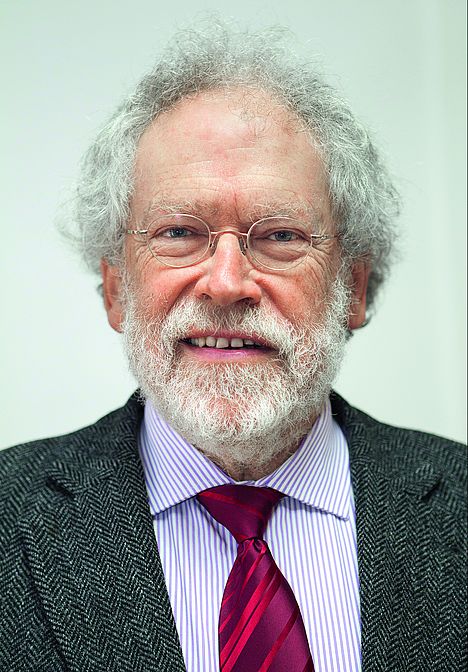
A NOBEL PRIZEWINNER AT THE STANDING Room
Anton Zeilinger, the new Austrian Nobel Prize winner for physics, was not only an extra at the Vienna State Opera, but also spent time at the standing room of the house. On the occasion of his honour: his memories of this time.
My state opera origins date back to my high school days. At that time, I began to attend the standing-room section of the Vienna State Opera on a regular basis, although I must add that I was highly specialized, which meant that, with a few exceptions at the Musikverein, I only ever attended the standing-room section. For a few years, especially during my student days, I could be found there weekly. With a few friends, I often queued up long before the actual performances, as was customary at the time, and if we had to, we took turns in the queue. Looking back, I can say that this queuing and waiting never seemed like a burden to me, it was simply part of it and increased the anticipation of what was to come. I don't think there was a single performance I didn't want to attend. At that time, it wasn't about individual singers or conductors, but always about the music: I didn't go on a pilgrimage to the opera to experience very special artists, but simply enjoyed the sounds, the music. So it is also obvious that I did not belong to any of the sometimes almost "ideological" groups that particularly acclaimed one singer but condemned another with hurricanes of boos. Which doesn't mean that we didn't join in the cheering when we particularly liked it! I remember that on some evenings we applauded up to thirty or forty curtain calls - but then we attended to the whole performance, to the cause, and not to individual protagonists or party fights. And although I saw the standing room less as a social meeting place, I can remember a cozy evening in the Gösser-Keller (which no longer exists), where we chatted about the experience: a pint of beer still cost 1.70 (shillings!), a mug of 2.50 (not euros). Not Euro), a mug 2.70... Since I was particularly interested in music, I got myself piano scores and scores of the most important operas and read along again and again during the performance, just as I often looked for a seat from which I had a good view of the conductor. And I already discovered something at that time that was to run through my later life as a scientist - by concentrating on the music, I kept coming up with ideas and ideas that had nothing to do with the music, but which helped me in my actual field of work. Parallel to my standing time, another state opera experience also entered my life, that as an extra in some productions. I still remember a Lohengrin by Wieland Wagner, an Aida, Tosca and a Palestrina - to this day my absolute favorite opera, both in terms of content and music. And although I was never really that interested in the scenic, my relationship to these operas had changed significantly through the rehearsals I witnessed, through my participation on stage, simply by being there. I got to know them so intimately that an entirely new depth of music opened up to me, I listened with a completely different ear: and that has remained to this day!
→ This article first appeared in June 2015 in the magazine of the Vienna State Opera.